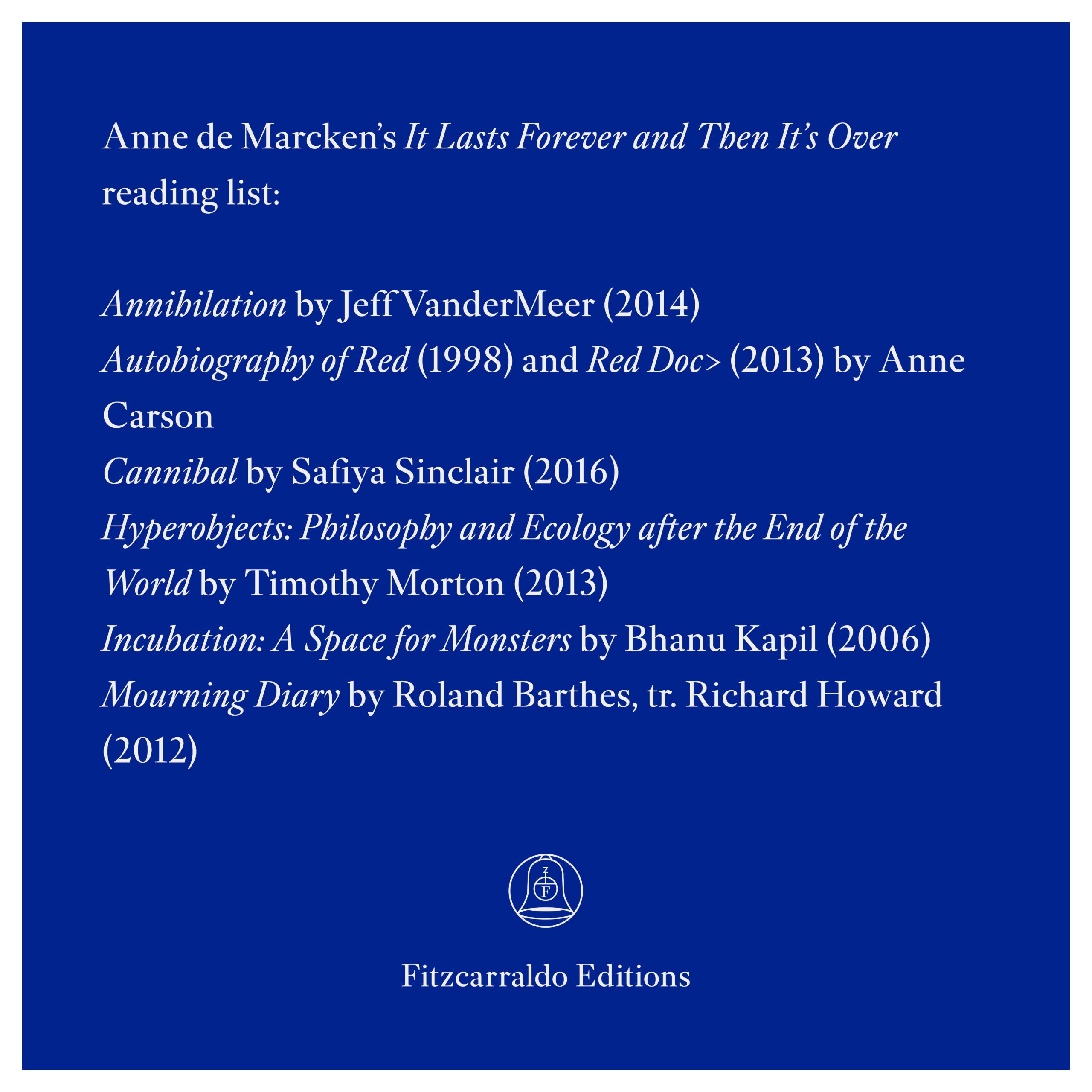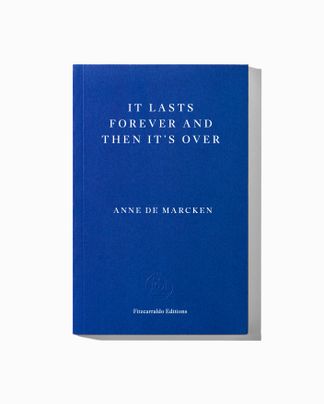The easiest companion reading list for me to assemble would be made of all the books from which the novel’s eight epigraphs are taken, but that feels like cheating. And really there are so many others – too many others. Here is just a handful specifically to do with monsters, monstrosity and grief:
Annihilation by Jeff VanderMeer (2014)
I think it is the uncanny horror of this book that I love – a confusion between human and other that feels correct.
Autobiography of Red (1998) and Red Doc> (2013) by Anne Carson
The monster protagonist of Carson’s Herakles retelling(s) exceeds his Western classical function as abject other, yet still lives – loves, suffers, goes on – in the register of mythos.
Cannibal by Safiya Sinclair (2016)
A book of the body – particular, collective, political, epic – these poems are the monster’s precise indictment of the master. Here are grief and rage.
Hyperobjects: Philosophy and Ecology after the End of the World by Timothy Morton (2013)
We are breathing uncanny air in this time of climate catastrophe. Morton’s idea of the ‘hyperobject’ describes the immanent loss that I can feel in my bones and skin but still fail to grasp, both massive and diffuse, a loss I both suffer and cause.
Incubation: A Space for Monsters by Bhanu Kapil (2006)
A road story and a monster story, this book about moving and belonging between places and categories, can itself not be classified.
Mourning Diary by Roland Barthes, tr. Richard Howard (2012)
When you are grieving, people will give you books about grief. This is the only one I managed to take in at all. Maybe in part because the portions are very small (in grief I have felt like an invalid capable of only the smallest sips), but also because its preoccupation is with what has been lost, not with healing from loss.


